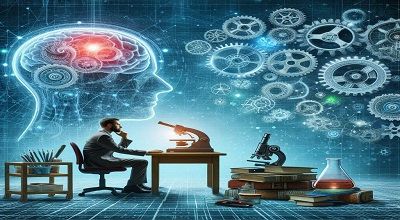Scientific Thinking and Mechanization Process
Scientific thinking and mechanization process are distinct concepts. But they can intersect in various ways, especially in the context of technological and industrial advancements. Let’s explore each concept separately and then discuss their potential connections.
Scientific Thinking:
Observation:
- Scientific thinking often begins with observation. Scientists keenly observe natural phenomena or specific events to identify patterns, regularities, or anomalies.
Question Formulation:
- Based on observations, scientists formulate questions. These questions drive the scientific inquiry process, guiding researchers toward a better understanding of the observed phenomena.
Hypothesis Formation:
- Scientists propose hypotheses, which are testable explanations for observed phenomena. These hypotheses are formulated based on existing knowledge. Serve as predictions to be tested through experiments or further observations.
Experimentation:
- Experiments are designed and conducted to test hypotheses rigorously. The results of experiments contribute to the accumulation of evidence that supports or refutes the initial hypotheses.
Analysis and Conclusion:
- Data collected from experiments are analyzed, and conclusions are drawn. Scientific thinking requires objectivity and a willingness to revise hypotheses based on evidence.
Peer Review and Replication:
- The scientific community plays a crucial role in validating and refining scientific thinking. Peer review and replication of experiments by other researchers contribute to the credibility and reliability of scientific knowledge.
Mechanization Process:
Definition:
- Mechanization involves the use of machines or automated processes to perform tasks that were traditionally carried out manually. It is a key aspect of industrialization and technological progress.
Efficiency and Productivity:
- Mechanization aims to enhance efficiency and productivity by automating repetitive or labor-intensive tasks. This can lead to cost savings, increased output, and improved precision.
Technological Advancements:
- Mechanization is closely tied to technological advancements. Innovations in engineering and automation contribute to the development of machines capable of performing diverse functions.
Impact on the Workforce:
- The mechanization process can have implications for the workforce. Potentially leading to job displacement in some sectors while creating new opportunities in others. It often requires workers to adapt to new skills and roles.
Connection between Scientific Thinking and Mechanization:
Innovation and Discovery:
- Scientific thinking drives innovation and the discovery of principles that can be applied to create new technologies. Mechanization often results from the practical application of scientific knowledge to automate processes.
Problem-Solving:
- Both scientific thinking and mechanization involve problem-solving. Scientists seek solutions to understand natural phenomena. While engineers and technologists apply scientific principles to design machines that address specific challenges.
Continuous Improvement:
- Scientific thinking and mechanization are iterative processes. Scientists refine theories based on new evidence, and engineers continually improve machines and automation processes through technological advancements.
Ethical Considerations:
- Both domains require ethical considerations. Scientists must consider the ethical implications of their research. While those involved in mechanization need to address ethical concerns related to job displacement, environmental impact, and societal well-being.
Summary
In summary, while scientific thinking is a systematic approach to understanding the natural world. Mechanization is the application of technology to automate and enhance various processes. The intersection of these concepts occurs in the translation of scientific knowledge into technological advancements that drive mechanization and its societal impacts.
